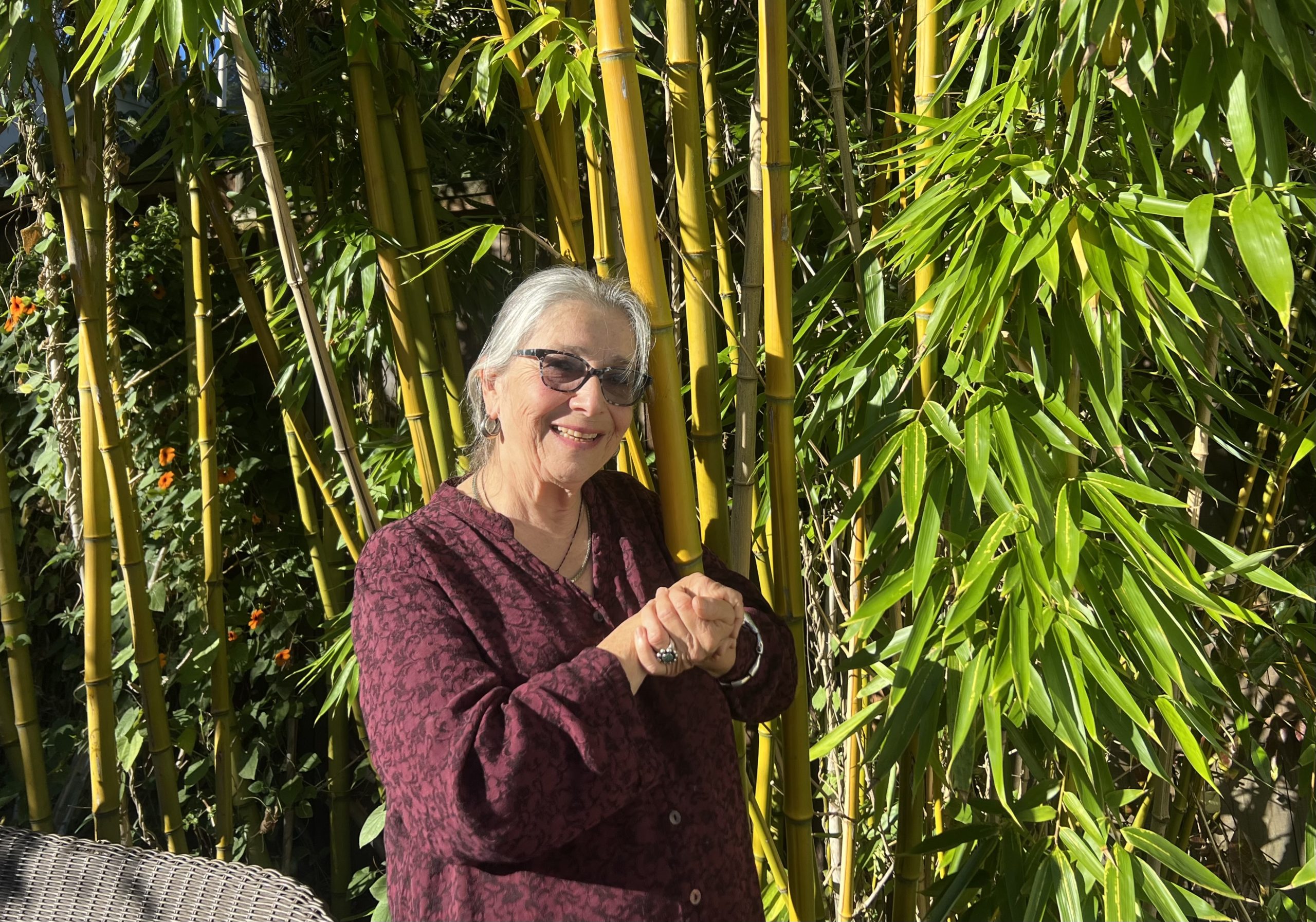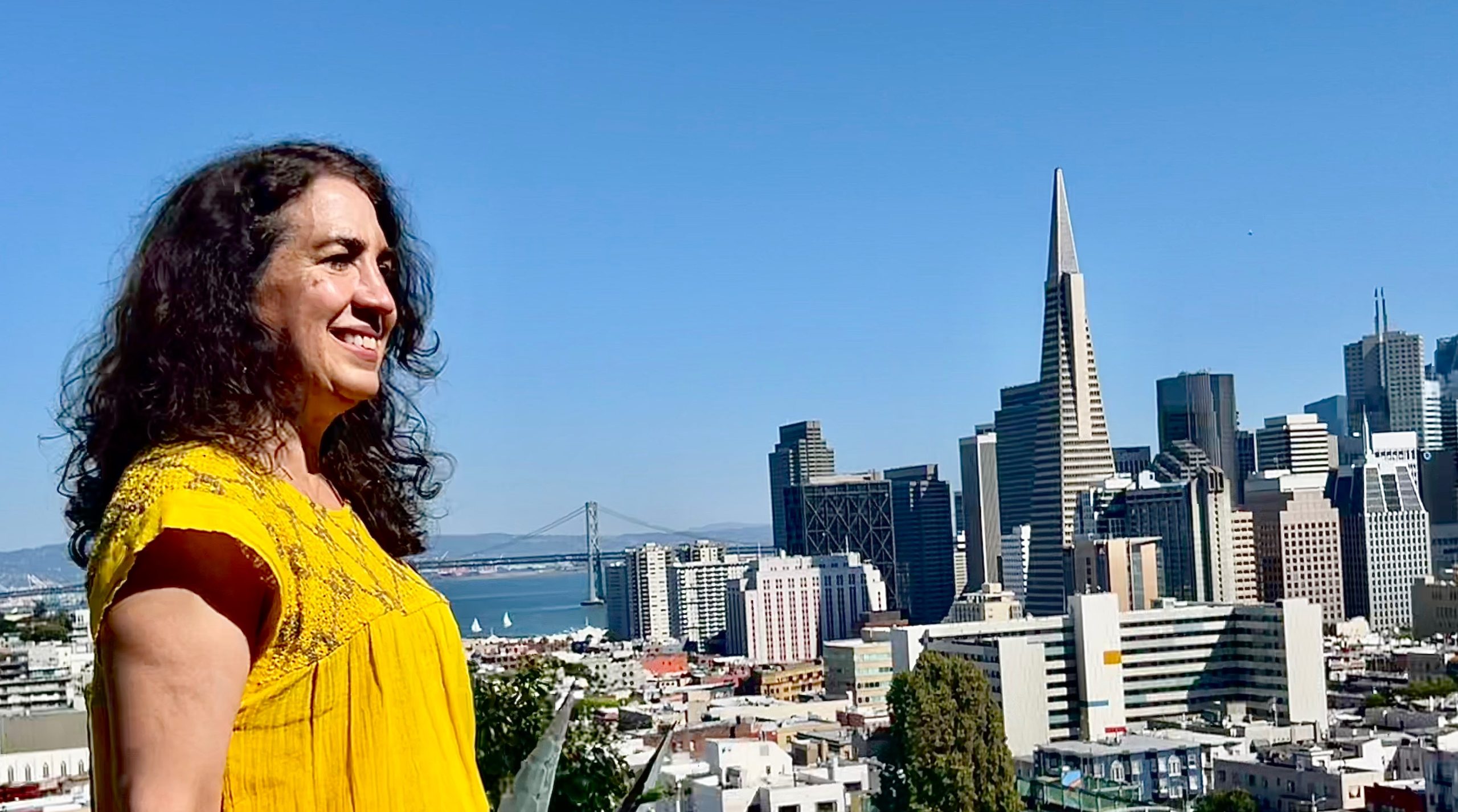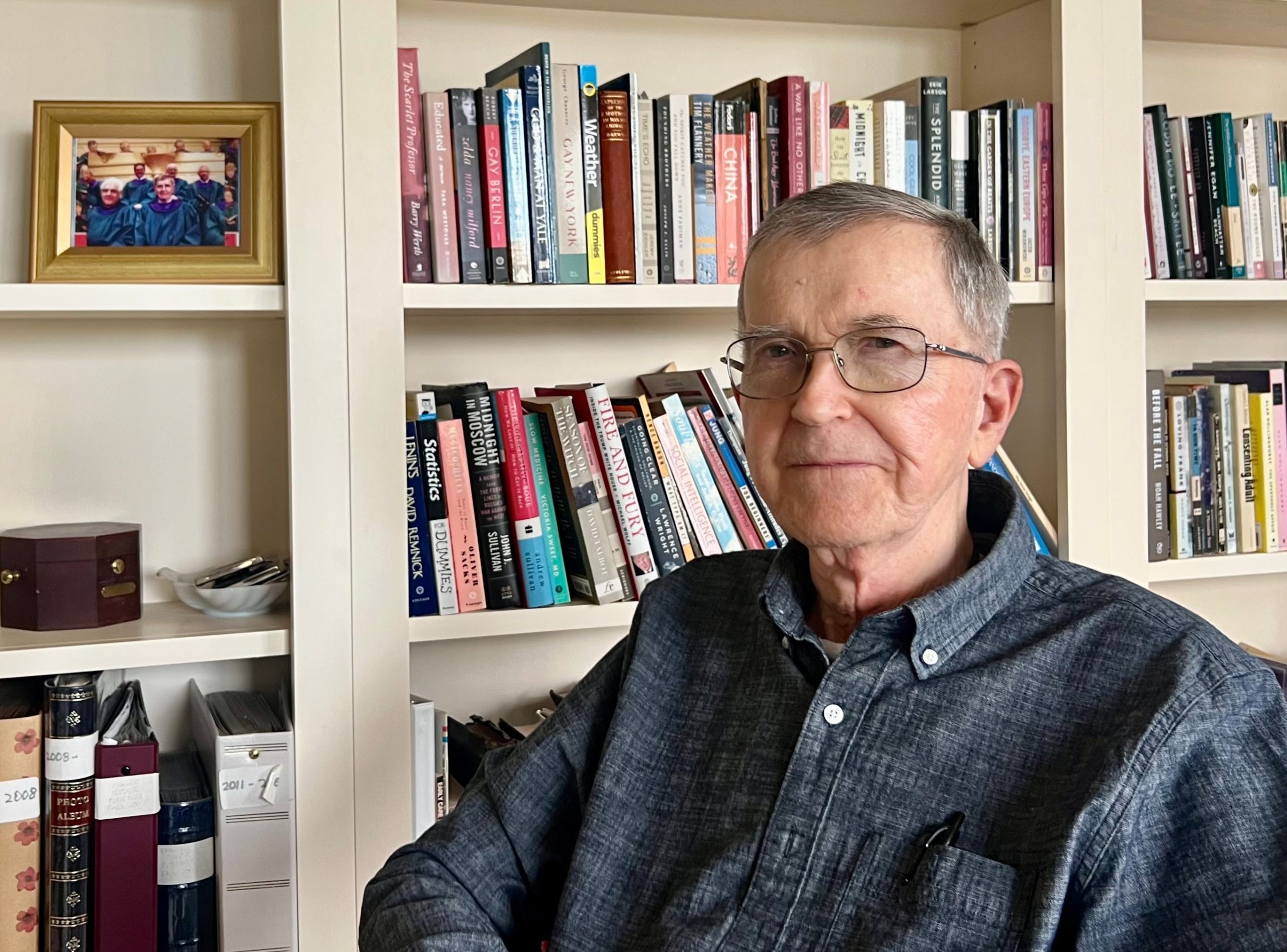Neighbors giving back make the world a better place – for themselves, too
CREATING COMMUNITY –
- Al Crowell arranges speakers and dinners for Sierra Club meetings.
- Margaret Graf advises the city on senior issues and launched “Senior Power!”
- Ed Mason monitors Google commuter buses for violations of city regulations.
- Ellen Zhou searches for seniors to serve on San Francisco’s Civil Grand Jury.
- Arete Nicholas answers community questions and teaches workshops on gardening.
- Jerry Ferraz plays guitar as book lovers scan the shelves at a neighborhood bookstore.
These seniors are improving the life of their community while helping themselves. Studies show that when individuals give, they get back – in increased well-being. A 2006 study published in The Journal of Positive Psychology by professors at the University of Missouri, Columbia, and the University of California-Riverside, found that people who gave to others tended to score much higher on feelings of joy and contentment.
Randy Lewis, a corporate executive and author of “No Greatness without Goodness: How a Father’s Love Changes a Company,” says we have a responsibility to make the world a better place for everyone, including those with disabilities. He came to this worldview by watching his autistic son grow up.
There are many people who give back – from hand-making cards to send to kids in the hospital, to participating in community events and fund-raisers, to planting a tree. Here’s just some of them in your neighborhoods:
Keeping his hands full
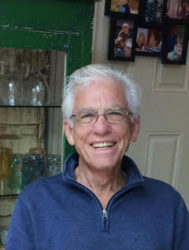
Al Crowell, 75, who says he’s “always been good with his hands,” manages to keep his hands full. He designs and helps build home additions and reconstructions for himself and his friends, while also restoring furniture. A 20-year member of the San Francisco Bay chapter of the Sierra Club, he volunteered to secure speakers for their third-Thursday meetings and organize dinners with their catering company when no one else stepped up for the job. Because he loves to play ping-pong, Crowell recently established a weekly senior ping-pong game at the Amazon-Crocker playground, Wednesday afternoons from 1 – 3 p.m. “Just show up,” he said, “We’ll get you folded in.”
A self-described “Renaissance Man,” Crowell was a marriage and family counselor who also self-published his short stories and novels and surfed until he was 67. Now, he rides his bicycle around his Noe Valley neighborhood, adding, “I have an electric motor for the big up hills.”
Looking for help, she became a helper
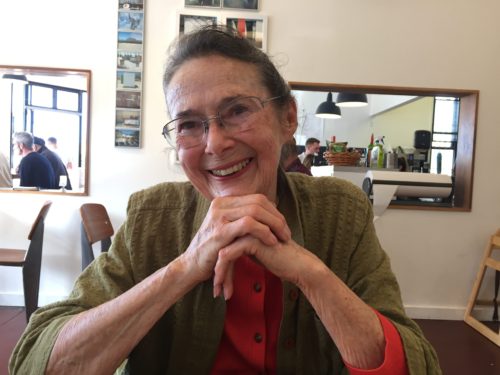
Margaret Graf, 80, wasn’t able to follow her girlhood dream of becoming a lawyer until after her three children were in school. Before then, for women, she said, “that wasn’t an acceptable profession back then, so I became a nurse.” She got her law degree, working for years in liability law. When her husband developed Alzheimer’s, she went back to caregiving.
Looking for resources in the Sunset District – where she has lived for 55 years – led her to her supervisor’s office. She ended up volunteering on a committee developing a district disaster plan. Seeing her enthusiasm and energy, Supervisor Katy Tang asked her to serve on the advisory council to the city’s Aging and Adult Services Commission. The commission oversees services related to older adults and adults with disabilities.
Graf also serves on the commission’s legislative committee, reviewing and tracking bills relating to senior matters. And now, she’s brought her energy back to her neighborhood – with “Senior Power!,” a free, monthly get-together open anyone to socialize, practice Qigong and hear speakers on subjects of interest to seniors. “Because my husband has Alzheimer’s, I need diversions that will keep me balanced,” she said.
Keeping an eye on the ‘hood
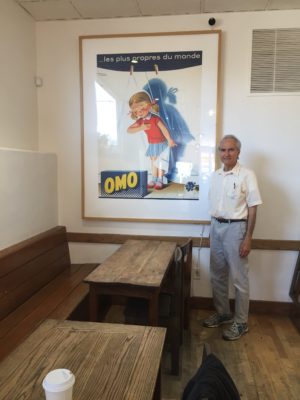
It was in 2006 that Ed Mason began noticing huge, almost two-story buses populating his Noe Valley neighborhood. Google commuter shuttles picking up people who worked in Silicon Valley could barely navigate the narrow streets, shaking windows and foundations. “It was a nightmare.”
Negative publicity and protests followed, and the city established a regulatory program and fee structure, overseen by MUNI, to mitigate the impacts. “But the program hardly took care of the noise, congestion and illegal parking.” said Mason, “so I started monitoring the buses.” In one case, he photographed a shuttle bus blocking a city bus from going to the curb to pick up a person in a wheelchair. He sent the photos to MUNI.
He served in the Navy, dealing with logistics and organizing support equipment. “Perhaps that’s where I got my sense of overviewing what’s going on in a community,” said Mason, 73, who still lives in the house he grew up in.
Mason is out every day monitoring commuter buses in his neighborhood. He has 100 people on his mailing list who share information. “I have a full-time job I didn’t want.”
Searching for seniors
Ellen Zhou looks for seniors to serve on San Francisco’s Civil Grand Jury. She herself is 49 but said, “in my culture, we feel we have an obligation to share knowledge, so we don’t take it to the grave.” Seniors, with their deep wells of experience, have much to contribute, she said.
Zhou, a behavioral health clinician for the city Public Health Department, volunteers for the grand jury as public relations liaison as well as board member. She said she was drawn to the grand jury because it is a voice for all people in the city. “As an immigrant myself, I find that extremely important.”
The Civil Grand Jury investigates the operations of the various city departments, agencies and offices. It is made up of 19 members, with 11 alternates, who serve for a period of one year, from July 1 through June 30.
“The exciting part for members,” Zhou said,” is that each grand jury determines which officers, departments and agencies it will investigate.”
Gardening’s in her DNA
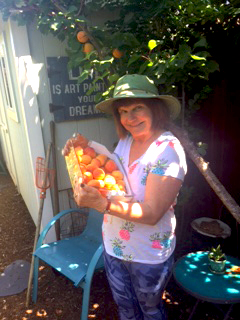
Arete Nicholas’ parents always gardened: Her father grew vegetables. During WWII in England, her mother had a Victory Garden, which is where the couple met. She loves flowers and plants, especially rhododendrons.
Today, Nicholas leads public plant clinics and workshops and answers questions from the public as a University of California Master Gardener. Certified after a 14-week educational program, they are volunteers, dedicated to UC research-based information about home horticulture, pest managements and sustainable landscapes throughout the community.
There are standard workshops but teachers can also create their own with university approval. Nicholas created a workshop called “Cultivate Your Inner Garden,” using visualization to help participants see a garden past, present or future. “I like to help people get in touch with themselves through the medium of nature.”
Nicholas, 71, is a nurse who earned a master’s degree in gerontology from San Francisco State. She worked in geriatric care for many years and was director of health services and nursing at the Rhoda Goldman Plaza assisted living facility in San Francisco.
In the first year, master gardeners are required to complete 50 volunteer hours, including shifts on its gardener helpline. “It might seem like a lot, but the rewards are so great,” she said.
Music to the community’s ears
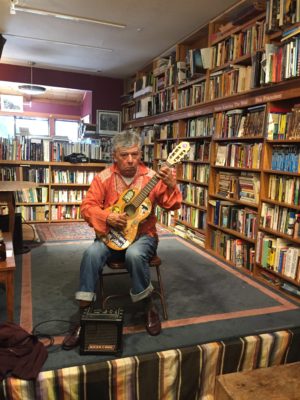
Jerry Ferraz, who grew up in Eureka Valley in the 1950s, described a youth spent as a “guerilla guitarist,” serenading children, bus drivers and workers at construction sites. “I stopped being a wandering musician when I got a car.”
Throughout the ‘70s and ‘80s, he performed in poetry circles all over the city, and since the early days of the Bird and Beckett Bookstore in Glen Park, he has hosted their twice-monthly poetry series.
Ferraz’s father was a bass player in Rangoon, Burma. His older brother was a blues harmonica player, guitarist and vocalist associated with Big Brother & the Holding Company and other psychedelic-era bands.
Bird and Beckett Bookstore is where you will find Ferraz on Sundays from 11:30 a.m. to 1:30 p.m. playing for shoppers and people who come just to hear him. “I don’t feel I’m giving back exactly,” he said. “I feel as if I am part of something that’s alive. Being part of a community has its rewards.”


